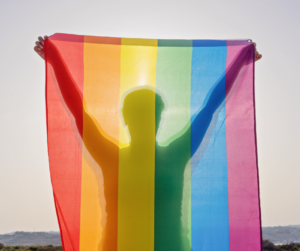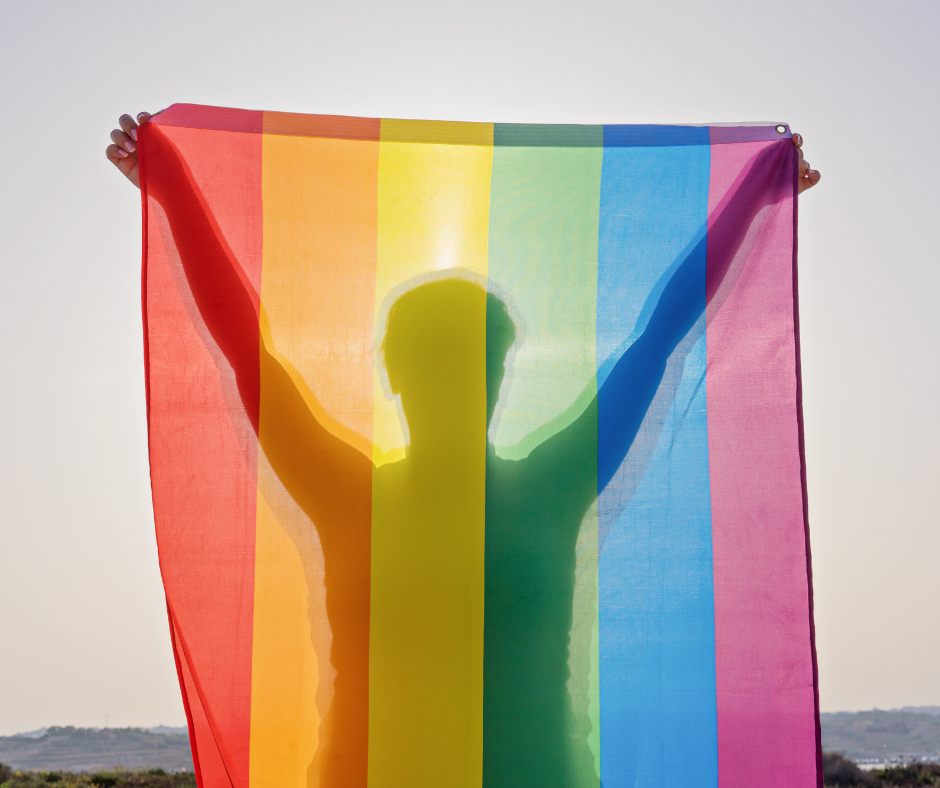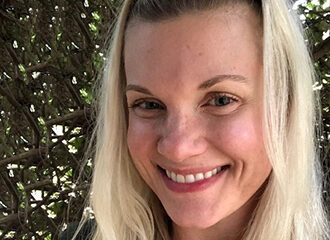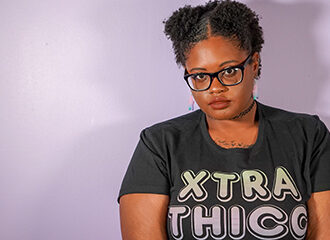By: Jamie “OJ” Bushell, alum of The Renfrew Center

LGBTQIA+ folks experience eating disorders at disproportionately higher rates than their cisgender heterosexual peers. Here are some statistics:
→ Transgender individuals have a higher rate of eating disorders than their cisgender peers.
→ Gay men are thought to only represent 5% of the total population of men, but among men who have eating disorders, 42% identify as gay.
→ Women identified as lesbian, bisexual, or mostly heterosexual were about twice as likely to report binge-eating at least once per month in the last year.
→ Black and Latinx LGBs have at least as high a prevalence of eating disorders as white LGBs.
There are a multitude of reasons why these statistics are true. Some reasons include:
- Discrimination, violence, and bullying
- A lack of affirming care
- Pressure and a need to hide their identity to stay safe
- Internalized stigma
- Lack of support from family and friends
- Financial, food, and housing insecurity
Additionally, transgender and non-binary folks who experience gender dysphoria may use eating disorder behaviors to suppress or accentuate primarily gendered features or secondary sex characteristics.
One protective factor for LGBTQIA+ folks, and eating disorders in general, is the influence of community and social support. Feeling connected to and supported by a larger community helps reduce eating disorder symptoms in LGBTQIA+ individuals. During Pride Month, we continue to fight and advocate for recovery, ourselves, and the opportunity to love who we are and who we are becoming.
(Sources: National Eating Disorders Association, Diemer et al., 2015)
Jamie “OJ” Bushell (they/them) is in recovery from an eating disorder and is the co-founder of thirdwheelED, a blog and social media platform that documents eating disorder recovery through a queer lens. OJ writes about the intersectionality of eating disorders, trauma, sexuality, and gender identity/expression. OJ uses their experience of seeking treatment for their eating disorder as a queer person to help raise awareness of the need for culturally responsive and affirming treatment and recovery support services for queer communities.



